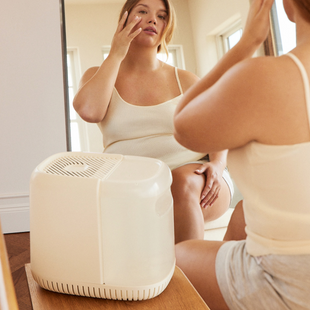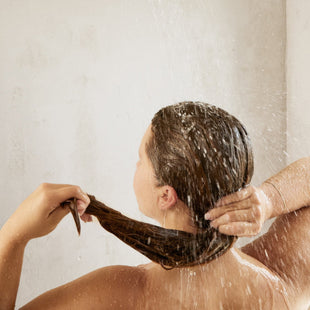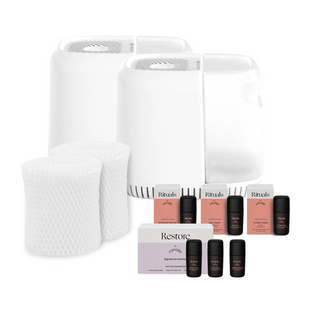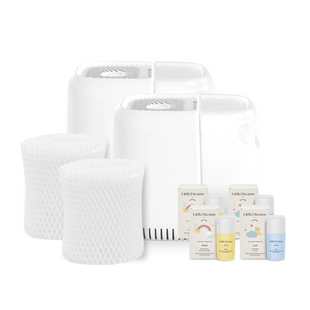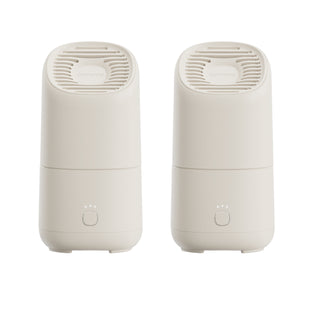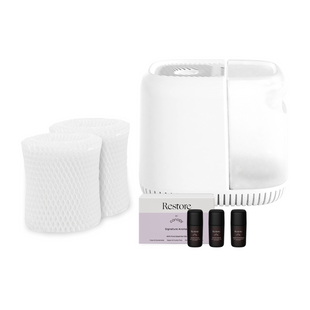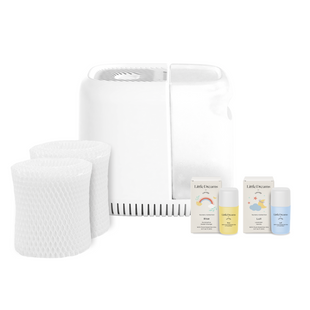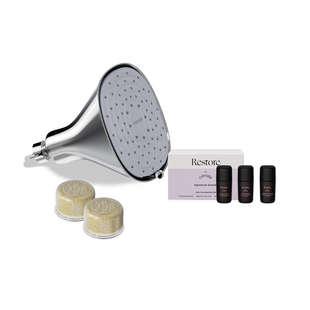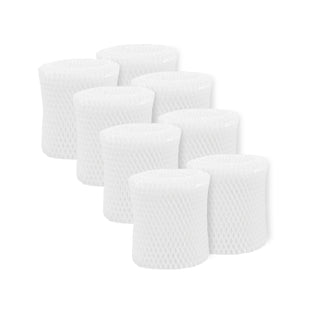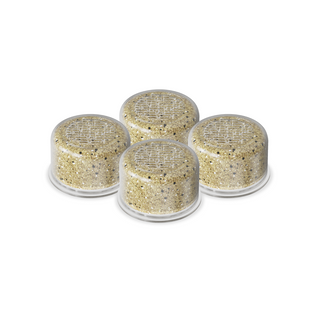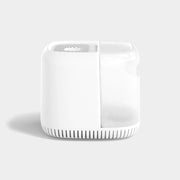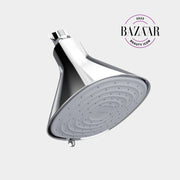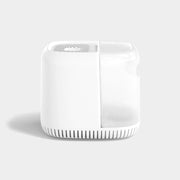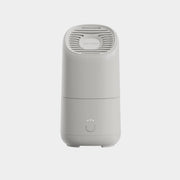While the winter months tend to bring cooler temperatures and snow, this type of weather can quickly become drying for the skin. Chapped, cracked, and dry skin often feels tight and uncomfortable, which is why it’s crucial to moisturize when the temperatures start to drop.
If you don’t already moisturize, finding the right products for your skin may become overwhelming. At Canopy, we make it our mission to promote healthy, beautiful skin. We understand the value of hydrated skin, which is why we are constantly committed to educating consumers about routines that could potentially become harmful to their skin. Our priority is providing the products you need to ensure your home is comfortable and ready for whatever the winter brings.
Before we get into the essentials of skincare for cold weather, it’s important to understand what causes dry skin in the cold weather. This guide will discuss how winter conditions sap the moisture from your skin and how you can preserve its moisture barrier throughout the winter.
The Effects of Cold Weather on Skin
Your skin and lips can go through a number of changes as the temperatures drop. Symptoms that indicate dryness include the following:
- Redness and irritation
- Flaky or scaly skin
- Cracked skin or lips
- Bleeding from chapped skin or lips
- Increased appearance of wrinkles and fine lines
Why Does Skin Get Dry in the Winter?

If you’re not sure why your skin gets dry and cracked in the cold, compare the winter air to the hottest days of summer. While summer air feels muggy and thick, winter air feels crisp and dry.
This is because winter air typically lacks humidity. In colder temperatures, air loses its ability to retain moisture. Water evaporates faster, and so does the moisture from the surface of your body. This combined loss of natural moisture prevents the skin from getting the hydration it needs, resulting in dry, cracked lips and skin. Harsh winter winds and indoor heating exacerbate dry skin problems, especially when moving from one extreme to the next, such as going indoors to outdoors.
3 Signs of Dry Air
Before the full effects of winter set in, there are some environmental warnings that indicate the air is getting dryer. Being proactive and taking measures to protect your skin can help prevent damage and discomfort early on.
1. Dry Nasal Passages
Many people experience dryness, itchiness, or even a burning sensation in their nasal passages in cold weather. Dry, cold air can aggravate your throat and airways. If your nose or throat feels unusually dry indoors, that’s a sign your home needs more humidity.
2. Tight-Feeling Skin
As winter months approach, you may also start to notice that your hands feel tight and look flaky after washing them, and that your skin has a scaly texture after showering. This can happen when the water runs too hot. Hot water disrupts the natural skin barrier and washes away the skin’s natural oils, causing dryness.
Additionally, washing with hard water can lead to dry, patchy skin. Hard water contains harsh minerals like calcium and magnesium that strip the moisture from your skin and cause irritation. Some tap water is treated with chlorine, which sheds oils from the skin and can make it feel tight, itchy, and flaky.
3. Rosy Cheeks
Another winter red flag is rosy cheeks. While red cheeks are often just a sign of the chilly weather, lasting rosiness can indicate a deeper issue. They can signal a coming flare-up if you have rosacea, eczema, or other skin conditions. A prolonged red face can also be a symptom of winter sunburn. Snow is highly reflective of UV rays, leaving your skin at risk of exposure if it’s not properly covered up.
How Does the Winter Worsen Skin Conditions?
If you already deal with skin issues due to conditions like rosacea, psoriasis, and eczema, the dry winter air can trigger more frequent flare-ups. When skin grows excessively dry, your symptoms are likely to worsen. In addition to dry, cool air, there are other common winter factors that can contribute to flare-ups:
- Showering, bathing, or washing hands in hot water
- Sitting too close to a heater or lit fireplace
- Rapid temperature changes from leaving and entering the house
- Wearing itchy wool sweaters and other irritating fabrics
- Stress from the holidays
- Seasonal Affective Disorder (SAD)
- Limited exposure to sunlight
Once winter hits, it is more important than ever to take care of your skin and watch for flare-ups. Moisturizing, layering up, limiting habits that damage skin, and committing to a proper skincare routine will help protect your skin through the coldest months of the year.
How Does Showering Affect the Skin?

There are several ways to boost your skin’s moisture when the air becomes dryer, but one that often goes overlooked is modifying your shower routine for better nourishment and hydration. Here are a few simple ways to make your winter showers work for you.
Poor Water Quality Can Clog Pores
The water quality in your shower is one of the most important factors for promoting healthy wintertime skin. Hard water, which has a high concentration of minerals, can leave a moisture-blocking layer on your skin, preventing hydration from penetrating your pores. The minerals magnesium and calcium are particularly likely to dry out your skin. To make matters worse, hard water is notoriously difficult to suds up with, meaning you’ll leave residue behind. Together, these issues can exacerbate dry winter skin and make issues like eczema or irritation even worse.
Even if your water isn’t mineral-rich, it may have a high concentration of chlorine. The chemical is commonly used in public water systems as a disinfectant, but there are certain drawbacks—including its effects on your skin. Chlorine removes natural oils from tissue, leaving the outer layer known as the skin barrier unable to retain moisture.
Fortunately, there’s a simple fix for addressing these issues: installing a filtered showerhead. Unlike a water softener, which simply eliminates hard minerals, a filtered showerhead can also remove chlorine from your water supply. The result is higher-quality water that’s easy to suds up and rinse with, which will also leave your skin feeling smoother and more hydrated—especially important in the winter months.
Hot Water Leads to Dryness
Addressing the quality of your shower water should be your first priority, but another important element of your winter skincare routine is adjusting your water temperature. You already know the effects of cold weather on skin, so it might seem surprising that hot water can have the following damaging effects:
- Hot water interferes with the natural skin barrier, which protects against irritation by removing natural oils and causing severe dryness.
- Even during milder weather, showers that are too hot can strip the skin’s oils and lead to issues like dryness and irritation.
Of course, warm water can feel super soothing if you’ve caught a winter chill. Rest assured, you don’t have to freeze yourself out during your shower; just keep the temperature lukewarm. That usually falls within the 98- to 105-degree Fahrenheit range, but most people can gauge by feel.
Longer Showers Can Dehydrate the Skin
A long, hot shower might sound like the perfect way to wind down (or start the day off right), but try to keep your suds sessions brief. Like water that’s too hot, being in the shower for too long will eradicate protective oils from your skin, leading to dryness. If you have a lot of self-care steps to tackle, try to streamline them by condensing your “everything shower” as much as possible. Or, consider breaking up your routine across multiple days.
3 Home & Lifestyle Winter Skincare Tips
The shower isn’t the only room in the home that benefits from adjustments during the winter months. There are other steps you can take to ensure the rest of your home is a comfortable living environment for you throughout the cooler months.
1. Hydrate With a Humidifier

Among the simplest and most effective ways to beat dry winter skin is addressing lack of moisture at the source. It’s not just outdoor air that becomes drier in the winter, but indoor air, too. Factors like air leaks, outdated windows or HVAC systems, and insulation issues can allow dry winter air to seep into the home.
A humidifier can achieve the following results during the winter:
- Cold air holds less moisture, but a humidifier can address the issue by replenishing moisture indoors.
- Running a humidifier improves your indoor air’s ability to retain heat.
- A humidifier will help offset the effects of winter dryness and protect your skin barrier against damage by keeping the indoor humidity between 30% and 60%.
For the best results, run a humidifier in areas of your home where you’re likely to spend the most time, such as the bedroom or living room. If you have a baby, the nursery is the perfect space for placing a humidifier to deliver nourishing hydration all night and ensure your baby is breathing in clean, healthy air.
2. Streamline Your Skincare for Cold Weather
Beyond your showers and living spaces, there are other lifestyle changes you can make to beat the effects of cold weather on skin.
- Re-evaluate Your Skincare Routine: Eliminate any factors that could contribute to dryness, such as products with harsh ingredients. While many anti-aging treatments have nourishing factors, they may also contain harsh chemicals that can intensify wintertime dryness. Use these products in moderation or stow them away until next season.
- Moisturize With Thicker Products: When it comes to moisturizing, you might consider looking for a thicker formula for the winter. While lightweight lotions suffice for warmer weather (when the atmospheric moisture is higher), heavier lotions and creams can help lock in hydration when the air is cool and dry. Don’t forget your lips — this sensitive skin needs nourishment, too, so apply a moisturizing lip balm regularly.
- Change Your Laundry Detergent: You might also want to swap out your laundry detergent for a fragrance-free alternative. Even if your usual detergent doesn’t irritate your skin normally, you may find that fragrances can make dry, itchy skin worse in the winter.
3. Avoid Irritating Fabrics

A final but important part of proper skincare for cold weather is wearing the right clothing. While thick wool and tight-fitting nylon could help you keep warm this season, you’ll want to avoid them if your skin is sensitive or already irritated. Synthetic fabrics in general can lead to skin irritation, so stick to breathable cotton and layer up if you’ll be heading outdoors.
Comprehensive Solutions From Canopy
Canopy offers a range of humidifier options for all environments, from your bedside to your newborn’s nursery. With dishwasher-safe parts and innovative mold-inhibiting technology, our systems offer simple and clean home hydration for healthier skin through the winter and beyond.
For water solutions, Canopy’s Filtered Showerhead is dermatologist-recommended and easy to install. It’s available in four sleek finish options and it has the ability to filter out skin-drying contaminants, such as chlorine and heavy metals. Users have reported healthier-looking, more hydrated skin in just 30 days of use.
Canopy offers an array of solutions to help make your home more comfortable, especially for little ones. With a family-first approach, Canopy’s solutions can create a welcoming atmosphere year-round, especially during the colder months.

